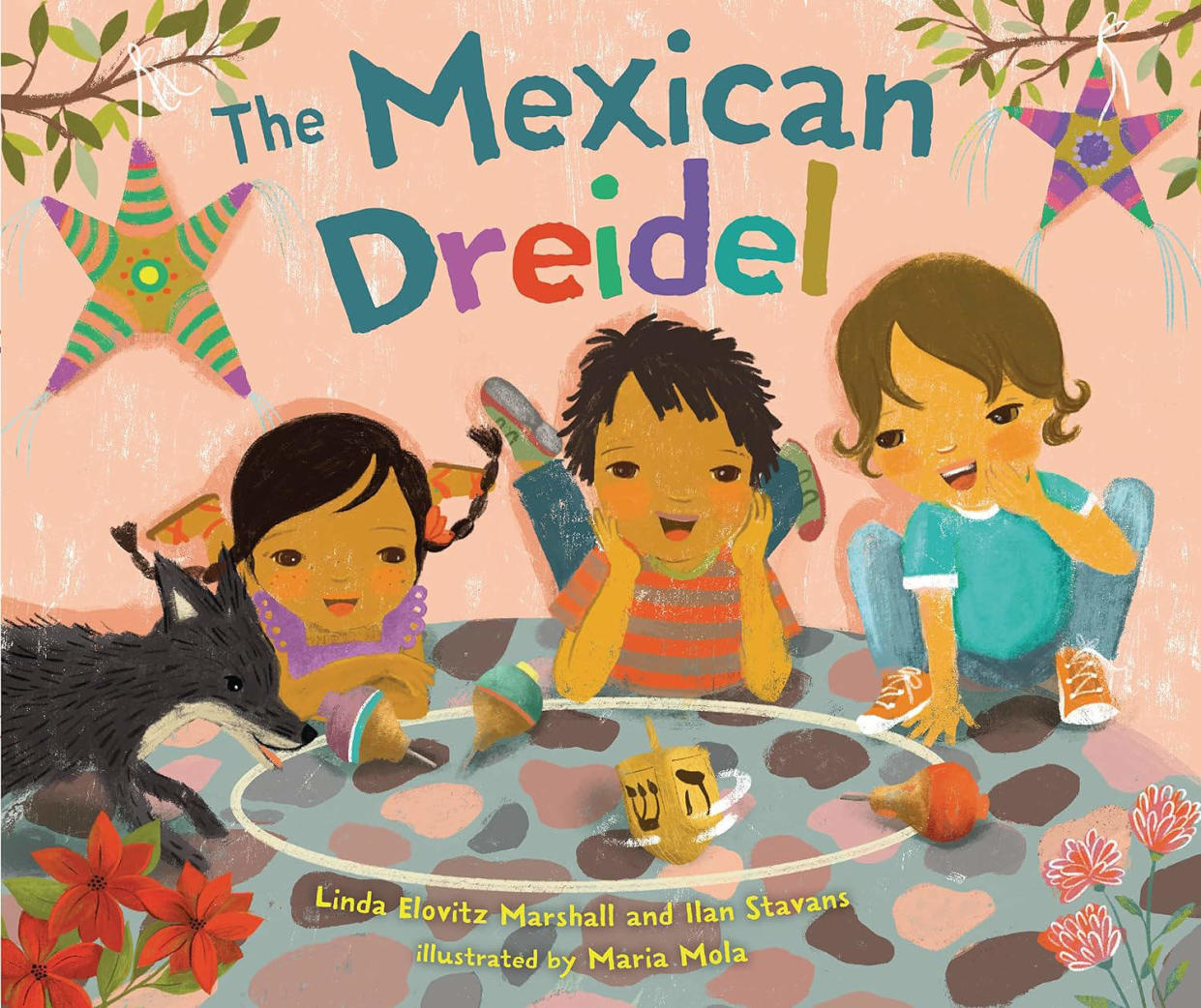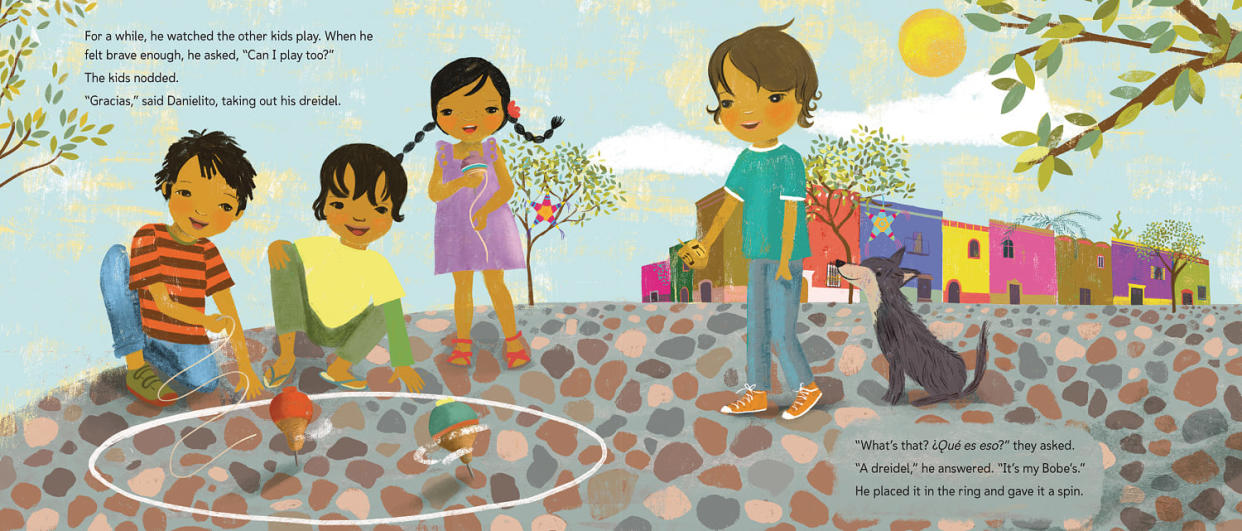A Mexican Hanukkah: An author reflects on his heritage and the message of endurance
As Jewish families gather to celebrate the eight days of Hanukkah, the Festival of Lights can deliver a powerful message of endurance during difficult times, according to Mexican American author and scholar Ilan Stavans.
"Whether it is now, when antisemitism is rising, or in the past, during the Holocaust, or even further back, during the Spanish Inquisition, Hanukkah is a reminder that we have to find a way to endure,” Stavans said. “Hanukkah reminds us that as we go from one diaspora to another, we can get inspiration from moments of resistance in the past to continue our story.”

Stavans recently co-authored a children’s Hanukkah book, “The Mexican Dreidel,” with Linda Elovitz Marshall. It tells the story of a magical wooden dreidel (a four-sided spinning top) that a Jewish grandmother gifts to her grandson in an unnamed Mexican town.
For Stavans, who grew up in Mexico speaking Spanish and Yiddish, the Jewish Festival of Lights reminds him of the ways that his family kept their Jewish heritage alive in Mexico.
“We celebrated Hanukkah in Mexico. We had latkes, which are potato pancakes that you eat with sour cream and applesauce,” he recalled. “Every night, cousins would come to our house, or we would go to our grandmother’s house to play dreidel and have a piñata — this is a tradition in Mexico that both Jews and non-Jews have in their holidays.”
Stavans said many children in Mexico play with trompos (colorful plastic or wooden spinning tops that have a metallic tip) during the Christmas season. And his book introduces both the trompo and the dreidel to show how toys can help children connect with their heritage and build strong friendships at early ages.
For Jewish children specifically, the dreidel reminds them of the miracle of Hanukkah — each side of the toy has a Hebrew letter, and together these four letters form an acronym that translates roughly into English as “A big miracle happened here.”
According to Jewish tradition, the Holy Temple in Jerusalem was rededicated after the liberation of the city from the Syrian Greek empire over 2,000 years ago.
At the time, Jews, who under occupation could not celebrate their faith publicly, lit the temple menorah with just enough oil for one day. And, as the story goes, it burned miraculously for eight days.
Believers during Hanukkah light a branch of their menorah candelabra each night to remember the victory of a small group of Jewish fighters who liberated Jerusalem all those years ago.
But beyond this ancient story of occupation and liberation, Stavans says, there is another message about endurance that resonates today.
“This is also a story about resisting against assimilation, which is an ongoing concern for many Jews in the diaspora. How do you keep your own tradition? How do you keep your own sense of self? How do you keep rooted?,” he said.
For Stavans, maintaining his heritage after moving to the United States became a focus of his writing. In the last three decades, the Amherst College professor has written over 30 books on American, Latino and Jewish identities.

Using Hanukkah to shine a light on others
When Stavans created the story for “The Mexican Dreidel,” he wanted to make sure that young readers could see illustrations of a diverse Jewish community in Mexico.
“I want readers to see the reality of a Mestizo culture because there are Jews in Mexico who are Mestizos, Jews who are White, and Jews who are Black as well.”
Stavans describes Jewish heritage as “the sum of the many diasporas that Jews live in.” Therefore, it’s incumbent upon them “to open up those diasporas through storytelling.”
Jewish communities around the globe will celebrate Hanukkah in the aftermath of the Hamas terrorist attack in Israel on Oct. 7, which killed about 1,200, mostly civilians, with evidence suggesting rape and sexual abuse of Israeli women and around 140 people still being held in captivity, according to Israel Defense Forces.
In Gaza, about 1.9 million people have been displaced as a result of Israeli attacks, with health officials saying the death toll has now surpassed 16,200 and the ground situation is turning increasingly "apocalyptic," according to the UN.
Teaching children about diversity, Stavans says, can also help them get past generalizations that could divide people into opposing sides: us vs. them.
“Hanukkah can allow you to see what those who are on the other side feel — we have to understand the pain of others because we have been in that same situation," Stavans said.
